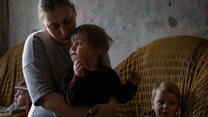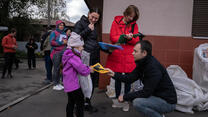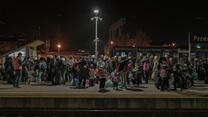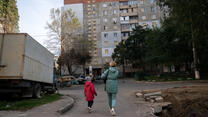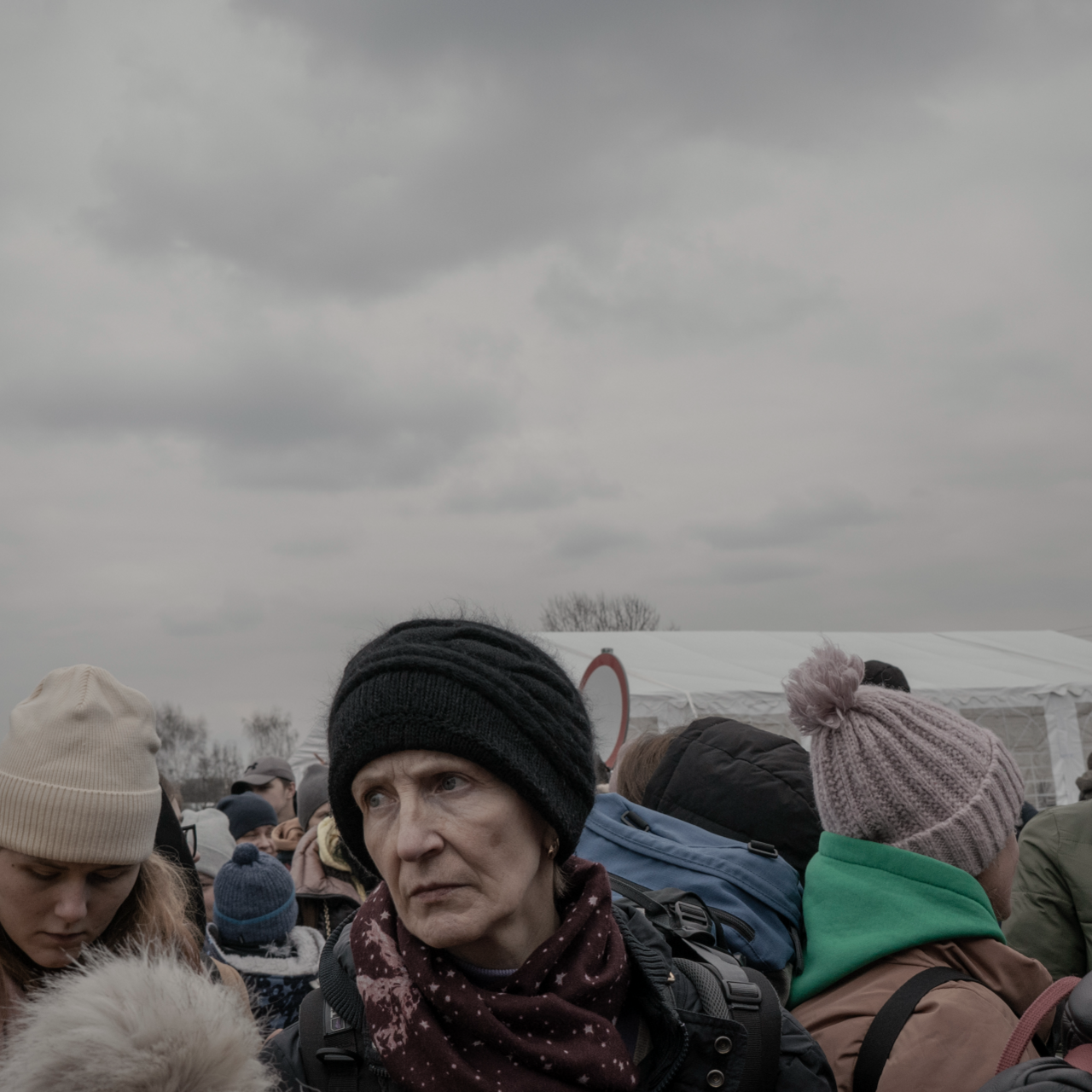
As Ukraine braces for another harsh winter, millions are struggling with depleted resources and little to no savings to carry them through the cold months ahead. More than fourteen million people still urgently need humanitarian assistance, and as temperatures continue to drop and airstrikes intensify, conditions are expected to deteriorate.
Since February 2022, the International Rescue Committee (IRC) has been on the ground in Ukraine, working closely with partner organisations to reach people in need. This winter, we are providing financial assistance to help people purchase blankets, coats, heaters and fuel for stoves, enabling them to stay warm this cold season.
What are conditions like in Ukraine?
Conflict has shaken eastern Ukraine since 2014, but the situation has drastically worsened since the full-scale war began in February 2022. Intensified attacks on energy infrastructure have made life especially challenging for civilians, particularly in areas facing the heaviest fighting.
Damage to Ukraine’s power grid has resulted in daily blackouts that can last up to 20 hours, disrupting both electricity and water supplies and compounding everyday hardships.
Last winter, Ukraine reportedly lost 60% of its power grid capacity and nearly exhausted its gas reserves. A similar energy shortage could strike this year, creating severe heating supply deficiencies. Limited supplies of solid fuel and rising costs will make it difficult for people to heat their homes.
Missiles have struck medical facilities, homes, schools and other pieces of civilian infrastructure. Over 2 million people have seen their homes either damaged or destroyed, leaving them especially vulnerable as winter sets in.
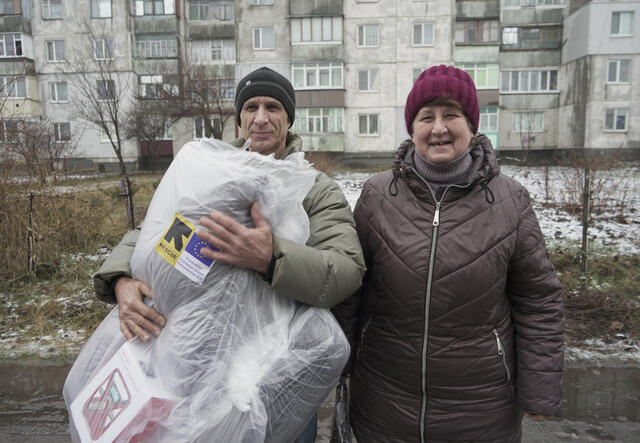
How cold is winter in Ukraine?
Winters in Ukraine are cold and snowy, with temperatures often plunging well below freezing. From December to March, average temperature ranges between 23 degrees Fahrenheit (-4.8 C) and 36 degrees Fahrenheit (2 C). In some regions where the IRC works, temperatures regularly drop to -5 degrees Fahrenheit (-21.6 C).
Approximately 3.4 million people in Ukraine are internally displaced, with many now living in collective shelters that lack adequate winter protection. On the frontlines, families live in damaged homes, often without reliable heating or electricity.
What will Ukrainians need to survive winter?
A January 2024 IRC survey found that winter items, heating and housing are top priorities for people during the cold season. Immediate assistance and additional funding are needed to minimise the humanitarian crisis in Ukraine this winter.
Millions of Ukrainians have had their homes destroyed by conflict. Now, they are seeking shelter from violence and the winter elements. Many are staying in buildings damaged by the conflict, and entire communities have been left without access to electricity. In September alone, at least 208 civilians were killed and 1,220 injured in Ukraine, marking the highest monthly civilian casualty count of 2024.
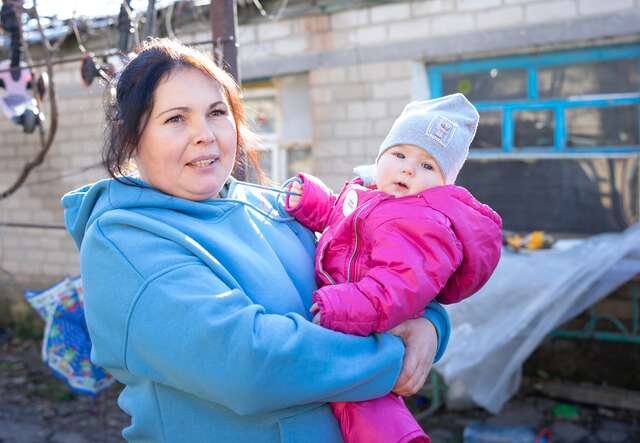
Who is most vulnerable during the winter in Ukraine?
More than 3.4 million people remain internally displaced. Humanitarian action is critical as the harsh winter season adds new risks for people already in dire need. While the entire country is affected, the situation is especially concerning in front-line and border communities in eastern Ukraine, such as Kherson, Sumy and Kharkiv.
Elderly people are especially vulnerable to Ukraine's winter. Many are less mobile and may be physically unable to leave their homes to seek safety. As conflict and cold weather disrupt their communities, the elderly often lose access to everyday services they rely on for food and care.
Limited electricity and communication services have also made it more difficult for families to take care of their parents and grandparents. At times, they may not even know if their family member is still alive.
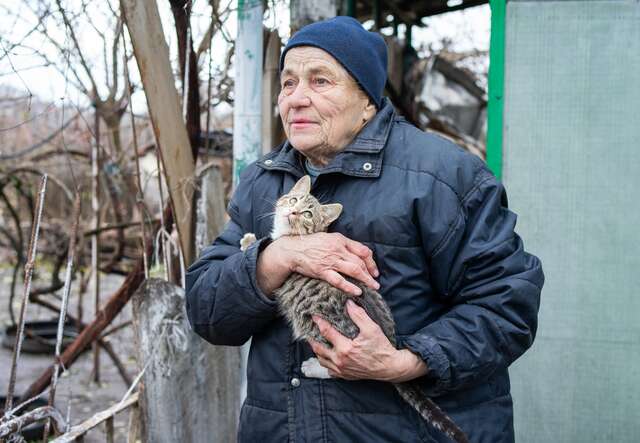
How will the IRC help Ukrainians survive winter?
The IRC is on the ground in Ukraine, delivering winter cash assistance to families, enabling them to purchase basic necessities, including blankets, coats, heaters and fuel for stoves.
Aside from our winter response, the IRC supports health facilities and provides health and legal consultations to displaced Ukrainians whose homes have been damaged in the war. The IRC and our partner organisations have also set up "safe healing and learning spaces" for displaced women and children and are working to ensure the needs of women, children and the elderly are met.
Find out more about how the IRC is helping Ukrainians and what you can do to help.
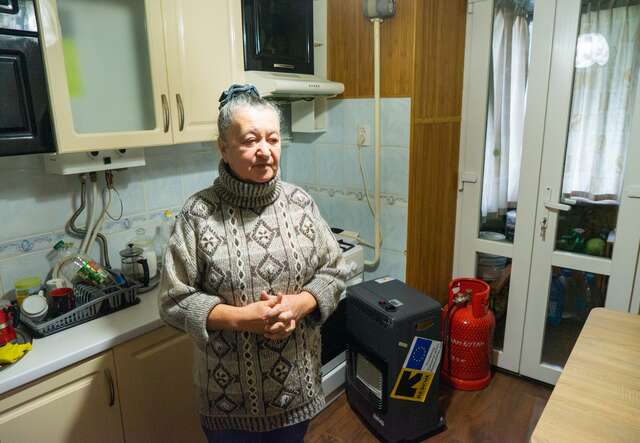
How can I help Ukrainians this winter?
Nearly three years since the Russian invasion, and a decade into conflict, it is critical to continue supporting people affected by the war, both those within Ukraine and those who have fled to neighboring countries.
Donate today to help Ukrainian families stay safe this winter.
